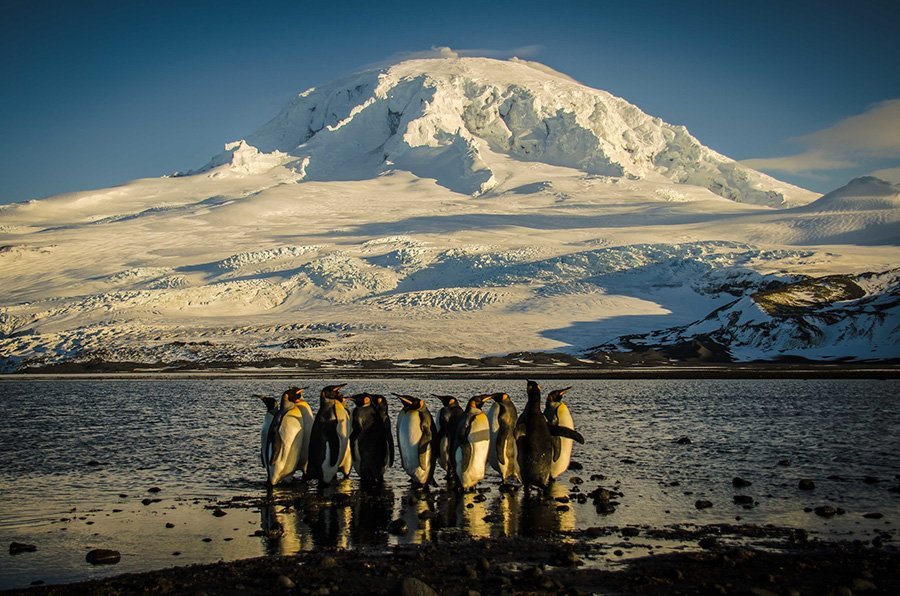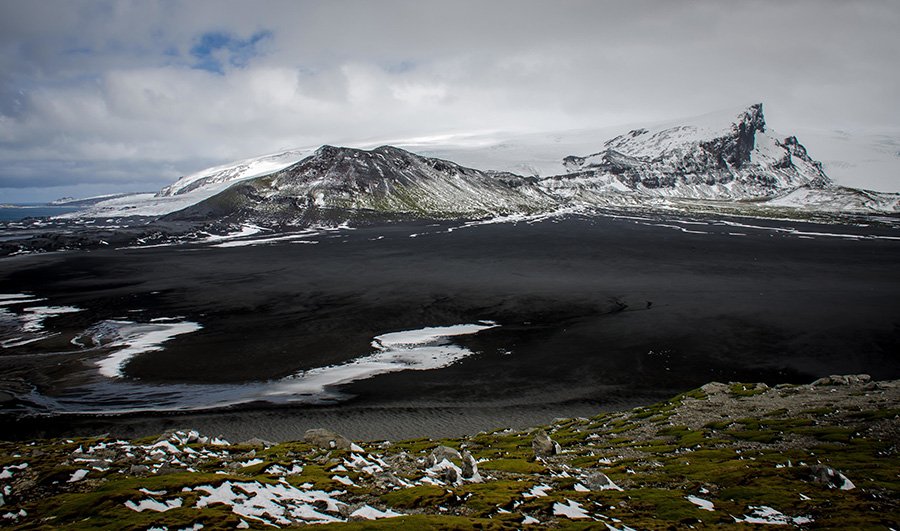Australian islands may become last strongholds for king penguins

CLIMATE CHANGE may force king penguins out of many of their current island homes by the end of the century, a new study suggests.
If current greenhouse gas emissions continue unabated, modelling suggests that some 70% of all king penguins – or around 1.1 million breeding pairs – may need to “abruptly” relocate, or face dying out.
King penguins will be forced to island-hop to new breeding colonies as climate change causes their fishing grounds to drift south. The penguins forage for food along the Antarctic Polar Front – a region where cold water upwelling creates a high concentration of fish.
The researchers predict that this fish-rich zone may end up too far south for many penguins to return home in time to feed their hungry chicks.
While islands currently packed with king penguins – like Crozet and Kerguelen – would possibly become uninhabitable for these seabirds, the study predicts that Australian sub-Antarctic islands Macquarie and Heard may become major strongholds for the charismatic species.
Macquarie Island, which lies about 1,500km southeast of Tasmania, is currently home to about 150,000 breeding pairs of king penguins, the second-largest species after Emperors. King also occupy Heard Island and the McDonald Islands, located more than 4,000km southwest of Perth.
“One possible scenario highlighted is that, as some of the sub-Antarctic islands further north become uninhabitable, that may displace king penguins to Heard Island,” says Dr Dirk Welsford from the Australian Antarctic Division. “It may be that we end up with more important components of the population within Australian territory.”
Relocating is not an easy task in the Southern Ocean, with only a few isolated specks of land scattered across this vast ocean wilderness – many of which are already occupied. “The competition for breeding sites and for food will be harsh, especially with other penguin species like the Chinstrap, Gentoo or Adélie penguins,” says Dr Céline Le Bohec, study author from the University of Strasbourg in France.

(Image Credit: Matt Curnok)
But the results of the study are not prescriptive, Dirk notes. “The study helps us understand what a possible future might be,” he explains. “However, we can’t be definitive about what’s going to happen under climate change, because it is very complicated.”
Dr Barbara Wienecke, a penguin ecologist from the Australian Antarctic Division, agrees. “There are a lot of other considerations that were not part of the model,” she says. “The authors acknowledge, for example, that they didn’t include potential sea level rise. Because king penguins need flat land to breed on, if the sub-Antarctic islands lose their beaches, they might still be in strife.”
But there are some indications that king penguins were able to adapt to drastic environmental changes in the past. Using genetic analysis, the research team reconstructed how king penguins have changed over the last 50,000 years, which revealed population bottlenecks related to shifts in climate. But the penguins have bounced back from these past population declines.

(Image Credit: Matt Curnock)
What’s more, the genetic profiles of far-flung colonies are similar, suggesting the penguins can and do roam around the entire Southern Ocean. “King penguins seem to be able to move around quite a lot to find the safest breeding locations when things turn grim,” notes author Dr Emiliano Trucchi from the University of Ferrara in Italy.
King penguins have survived human pressures before too, making an “absolutely extraordinary” comeback after populations were decimated for the oil trade 100 years ago.
But whether they can keep up with the challenges of climate change remains unclear. “They’ve obviously got some capacity to adapt,” says Dirk. “But whether they’ve got sufficient capacity to adapt at the rate of climate change is really hard to predict.”
On the other hand, the take-home message is resoundingly clear, according to the study’s authors. Céline says, “If we want to save anything, proactive and efficient conservation efforts and above all, coordinated global action against global warming should start now.”
The research was published in the journal Nature Climate Change.
READ MORE:

